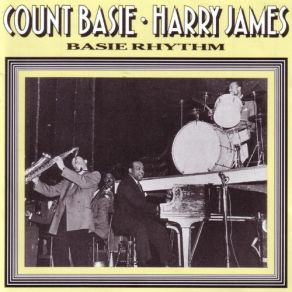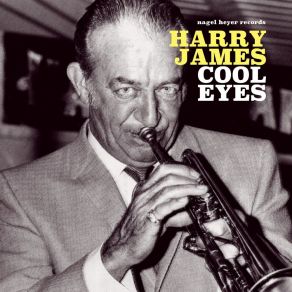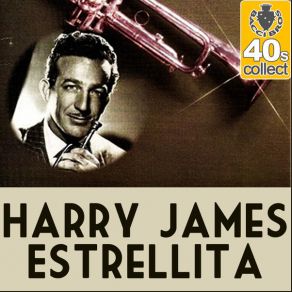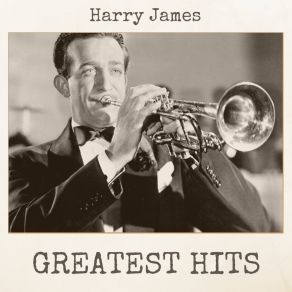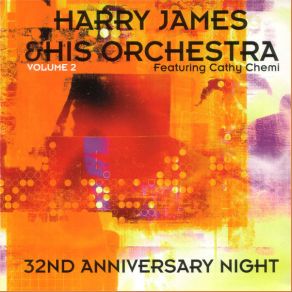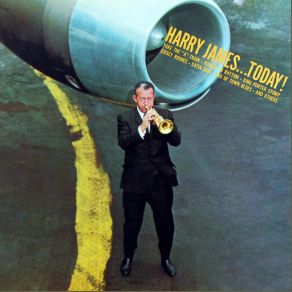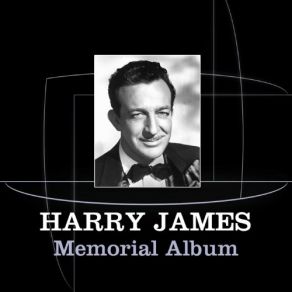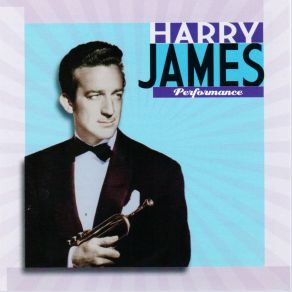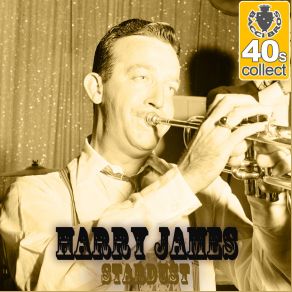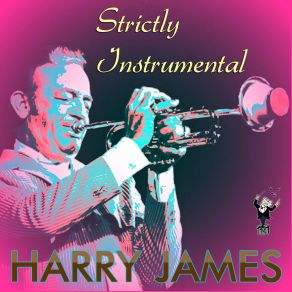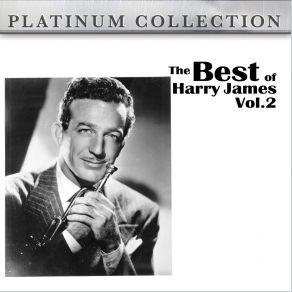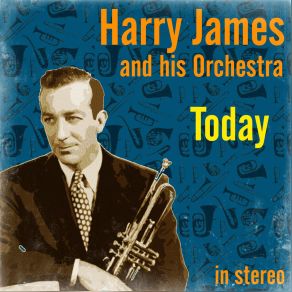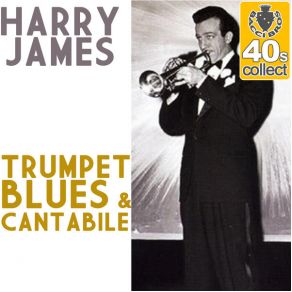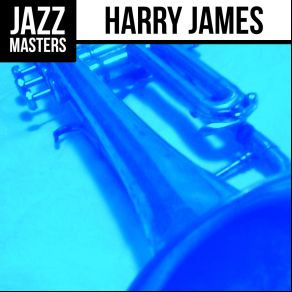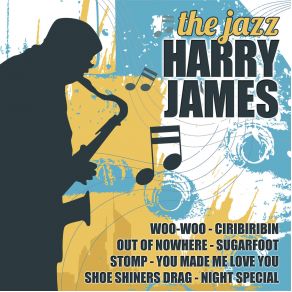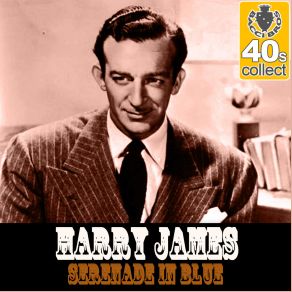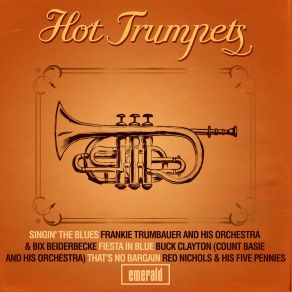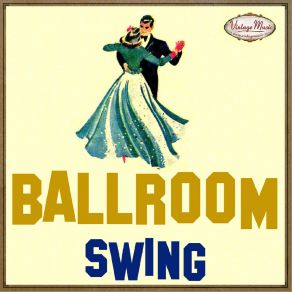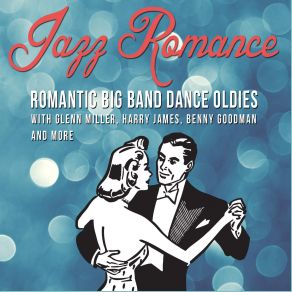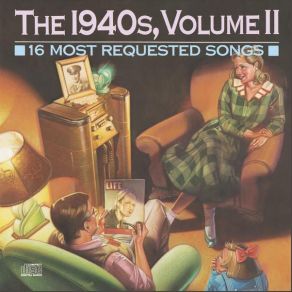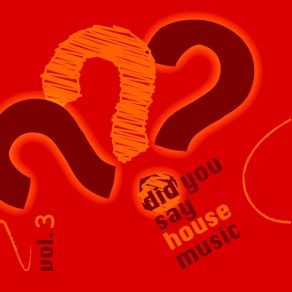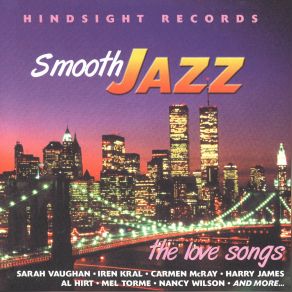Harry James
Wikimp3 information about the music of Harry James. On our website we have 70 albums and 70 collections of artist Harry James. You can find useful information and download songs of this artist. We also know that Harry James represents Jazz genres.
Biography
[Edit]Harry James was one of the most outstanding instrumentalists of the swing era, employing a bravura playing style that made his trumpet work instantly identifiable. He was also one of the most popular bandleaders of the first half of the 1940s, and he continued to lead his band until just before his death, 40 years later. James was the child of circus performers. His father, Everette Robert James, was the bandleader and trumpet player in the orchestra for the Mighty Haag Circus, and his mother, Maybelle Stewart Clark James, was an aerialist. Growing up in the circus, James became a performer himself as early as the age of four, when he began working as a contortionist. He soon turned to music, however, first playing the snare drum in the band from about the age of six and taking trumpet lessons from his father. At 12, he took over leadership of the second band in the Christy Brothers Circus, for which his family was then working. He attended grade school in Beaumont, Texas, where the circus spent the winter, and when he was 14 he won a state music contest as a trumpeter.
That inspired him to turn professional and begin playing in local bands. James' first job with a national band came in 1935 when he was hired by Ben Pollack. In May 1935, he married singer Louise Tobin, with whom he had two children and from whom he was divorced in June 1943. He made his first recordings as a member of the Pollack band in September 1936. Not long after, he was tapped by Benny Goodman, then leading one of the country's most popular bands, and he began working for Goodman by the end of 1936. He rapidly gained notice in the Goodman band, and by December 1937 he had begun to make recordings under his own name for Brunswick Records (later absorbed by Columbia Records).
In early 1939, he left Goodman and launched his own orchestra, premiering it in Philadelphia in February. That spring, he heard the then-unknown Frank Sinatra on a radio broadcast and hired him. The band struggled, however, and when the more successful bandleader Tommy Dorsey made Sinatra an offer at the end of 1939, James did not stand in his way. Around the same time, he was dropped by Columbia and switched to the tiny Varsity Records label. After two years of difficulties in maintaining his band, James changed musical direction in early 1941. He added strings and turned to a sweeter, more melodic style, meanwhile re-signing to Columbia Records. The results were not long in coming. In April 1941, he first reached the Top Ten with the self-written instrumental "Music Makers." (His band was sometimes billed as Harry James and His Music Makers.) A second Top Ten hit, "Lament to Love," featuring Dick Haymes on vocals, followed in August, and late in the year James reached the Top Five with an instrumental treatment of the 1913 song "You Made Me Love You (I Didn't Want to Do It)." This was the record that established him as a star. But with its sweet style and what was frequently described as James' "schmaltzy" trumpet playing, it was also, according to jazz critic Dan Morgenstern (as quoted in the 1999 biography Trumpet Blues: The Life of Harry James by Peter J. Levinson), "the record that the jazz critics never forgave Harry for recording."
James was second only to Glenn Miller as the most successful recording artist of 1942. During the year, seven of his recordings peaked in the Top Ten: the Top Five "I Don't Want to Walk Without You," with vocals by Helen Forrest; the number one instrumental "Sleepy Lagoon"; the Top Five "One Dozen Roses," with vocals by Jimmy Saunders; the Top Five instrumental "Strictly Instrumental"; "He's My Guy"; the Top Five "Mister Five by Five"; and "Manhattan Serenade," the last three with vocals by Helen Forrest. In September, when Miller went into the armed forces and gave up his radio show, Chesterfield Time, he handed it over to James, a symbolic transference of the title of top bandleader in the country. (James was ineligible for military service due to a back injury.) Meanwhile, wartime travel restrictions and the recording ban called by the musicians union, which took effect in August 1942, had limited James' touring and recording activities, but another avenue had opened up. He began appearing in movies, starting with Syncopation in May 1942 and continuing with Private Buckaroo in June and Springtime in the Rockies in November. His next hit, "I Had the Craziest Dream," with vocals by Helen Forrest, was featured in Springtime in the Rockies; it hit number one in February 1943. The movie is also memorable for having starred Betty Grable, whom James married in July 1943; they had two children and divorced in October 1965.
"I Had the Craziest Dream" was succeeded at number one in March 1943 by another James record with a Helen Forrest vocal, "I've Heard That Song Before." "Velvet Moon," an instrumental, followed and did almost as well, but with that Columbia's stockpile of James recordings made just before the start of the recording ban was almost exhausted. The label went into its vaults and began reissuing older James recordings. Frank Sinatra had recently emerged as a solo star, and in the spring of 1943, Columbia reissued "All or Nothing at All," a song he had recorded as James' vocalist in 1939; the song reached the Top Five. Next, Columbia released "I Heard You Cried Last Night," a year-old recording with a Helen Forrest vocal; it too reached the Top Five. Once again, James ranked as the second most successful recording artist of the year, just behind Bing Crosby.
Meanwhile, James was based in New York, doing his three-times-a-week radio show and appearing at major venues such as the Paramount Theatre and on the Astor Hotel Roof. He also appeared in the June 1943 film release Best Foot Forward. Decca Records settled with the musicians' union in 1943, which gave its recording stars an advantage, but while Bing Crosby, the Andrews Sisters, and Jimmy Dorsey (all on Decca) were the top recording artists of 1944, James came in fourth without ever stepping into a recording studio. His instrumental "Cherry," recorded in 1942, became a Top Five hit early in the year; "I'll Get By (As Long as I Have You)," recorded in 1941 with Dick Haymes on vocals, hit number one in June; and he had eight other chart records during the year. He also continued with his radio show through March and had two films, Two Girls and a Sailor and Bathing Beauty, in release in June. The two remaining major labels, Columbia and RCA Victor, came to terms with the musicians' union in November 1944, freeing James to return to the recording studio. This resulted in seven Top Ten hits in 1945: the number one "I'm Beginning to See the Light"; "I Don't Care Who Knows It"; "If I Loved You"; "11:60 P.M."; the Top Five "I'll Buy That Dream"; "It's Been a Long, Long Time"; and "Waitin' for the Train to Come In." "If I Loved You" had vocals by Buddy DiVito; all the rest had vocals by Kitty Kallen. That was enough to make him the third most successful recording artist of 1945, behind only Bing Crosby and Sammy Kaye.
Meanwhile, he and his band became regulars on the Danny Kaye Show radio series in January 1945, and he hosted its summer replacement program from June to September. James scored two Top Ten hits in early 1946 — the Top Five "I Can't Begin to Tell You," which featured a pseudonymous vocal by his wife Betty Grable, and "I'm Always Chasing Rainbows," with a vocal by Buddy DiVito — but then his recording success began to decline, though he managed one more Top Ten hit, "This Is Always," with Buddy DiVito on vocals, in the fall. Having appeared in a number of films, he formally signed a movie contract with 20th Century Fox, resulting in bigger parts in Do You Love Me?, released in May, and If I'm Lucky, out in September. He also took to the road for the first time since the end of the war.
The declining popularity of the big bands led many to break up in December 1946, James' orchestra among them. But in January 1947, his All Time Favorites collection was at the top of the album charts, indicating he was still broadly popular, and within months he had reorganized his band, reducing the number of strings (and soon eliminating them entirely), and taking a more jazz-oriented approach. He scored only one Top Ten hit in 1947, "Heartaches," with vocals by Marion Morgan. And he appeared in the film Carnegie Hall in May. James appeared in the film A Miracle Can Happen (aka On Our Merry Way) in February 1948, the same month he became a regular on the radio show Call for Music, which ran until June. He was not much visible in 1949, but in February 1950, his trumpet playing was heard in the film Young Man with a Horn, though the man fingering the trumpet onscreen was Kirk Douglas.
The Young Man with a Horn soundtrack, credited to James with Doris Day, hit number one in May 1950. Repeating that pairing, Columbia teamed James with Day for "Would I Love You (Love You, Love You)," which hit the charts in March 1951 and reached the Top Ten. Similar success was achieved with "Castle Rock," which paired James with Frank Sinatra and reached the charts in September. Meanwhile, James had his own TV series, The Harry James Show, which ran on a Los Angeles station for the first six months of 1951. From this point on, James maintained his band as a touring unit, though he was less frequently glimpsed in the media. He played himself in the film biography The Benny Goodman Story in 1955, the same year that, having moved to Capitol Records, he released Harry James in Hi-Fi, an album of re-recordings of his hits that reached the Top Ten in November. (The 1999 compilation Trumpet Blues: The Best of Harry James combines tracks from this album and its follow-up, More Harry James in Hi-Fi.)
By now, he was deliberately trying to make his band sound like Count Basie's. He was back onscreen in November 1956 in the film The Opposite Sex. He made his first major tour of Europe in October 1957, and in ensuing years he alternated national and international tours with lengthy engagements at Las Vegas hotels. There were two more film appearances, The Big Beat (June 1958) and The Ladies Man (July 1961). James performed regularly through the early '80s. He was diagnosed with lymphatic cancer in 1983, but continued to play, making his last appearance only nine days before his death at 67. Led by trumpeter Art Depew, his band continued to perform. No one questioned James' talent as a jazz trumpeter, though after his commercial ascendance in 1941 many jazz critics dismissed him. After his period of greatest success, he turned back to a more jazz-oriented style, which failed to change the overall impression of him, if only because he was no longer as much in the public eye. Nevertheless, his swing hits remain among the most popular music of the era. In addition to the Columbia recordings from his heyday, there are numerous other titles in his discography, notably many airchecks, though his recordings of the '50s are also worth seeking out.
Title: Lester Leaps In (Performed Live On The Ed Sullivan Show 2/14/60) - Single
Artist: Harry James
Genre: Jazz
Title: I'm Beginning to See the Light (Remastered) - Single
Artist: Harry James, Helen Ward
Genre: Pop
Title: The Two Kings Of Swing
Artist: Glenn Miller, Harry James, Horgi Music Digital Productions
Genre: Jazz
Title: The Ultimate Jazz Archive (Set 34: Big Band, Disc 3: Harry James)
Artist: Harry James
Genre: Jazz
Collections
Title: Fallin' in Love - Autumn Highlights (Extended Version)
Genre: Jazz
Title: Ultimate Memories
Genre: Pop
Title: Christmas JAZZ
Genre: Traditional Pop Music
Title: Jukebox Favourites - Hits of the 20s & 30s
Genre: Pop
Title: The Golden Dozen the Best of Jule Styne
Genre: Pop
Title: Music From Robert De Niro Films
Genre: Theatre/Soundtrack
Title: Big Band Remixed & Reinvented
Genre: Electronica, Jazz
Title: Jazz and Lounge
Genre: Jazz
Title: 100 Hits: Essential 30s & 40s Classics
Genre: Pop
Title: There'll Always Be An England - Great War Songs Vol 4
Genre:
Title: Summer Jazz Ballads (Extended Version)
Genre: Jazz
Title: Summer Jazz Ballads
Genre: Jazz
Title: Hot Trumpets
Genre: Jazz
Title: Billie & Lester
Genre: Jazz
Title: Hits of the 1940's
Genre: Pop
Title: It's Swing Time, Vol. 1
Genre: Jazz
Title: Savage Rhythm
Genre: Hip Hop/R&B, Soul, Jazz
Title: 20 Big Band Hits
Genre: Jazz
Title: Rare Jazz Sessions - (1938-1944)
Genre: Jazz
Title: Lady Burlesque
Genre: Pop
Title: 50 Big Bands and the Best Swing for Dancing
Genre: Jazz
Title: 100 Swing for Dance
Genre: Jazz
Title: Songs from Woody Allen' Films
Genre: Jazz
Title: The Hollywood Canteen (Songs That Won the War)
Genre: Jazz
Title: A Wing and a Prayer (Songs That Won the War)
Genre: Jazz
Title: Oldies Mega Hits of the Jazz Era
Genre: Jazz, Contemporary Jazz
Title: Night Club Jazz
Genre: Jazz
Title: Jazz Legends
Genre: Jazz, Drum & Bass, Dancefloor, Dance Pop
Title: 101 - The Best of Vintage Jazz
Genre: Electronica, Dancefloor, Dance Pop
Title: I Love the '40s Hits From the Big Band Era
Genre: Jazz
Title: The Best of the Big Bands
Genre: Jazz
Title: Popular Favourites No. 2
Genre: Pop
Title: Songs We Can't Forget, Vol. 5
Genre: Pop
Title: The Very Best of the 40s
Genre: Jazz
Title: That Devilin' Tune: A Jazz History (1895-1950)
Genre: Jazz
Title: 40's Dance Party
Genre: Jazz
Title: Greatest Hits of 1951, Vol. 5
Genre: Pop
Title: 101 Vintage Jazz Hits
Genre: Jazz
Title: 16 Most Requested Songs: The 1940's, Vol. 2
Genre: Jazz
Title: Legends of Big Band Swing
Genre: Jazz
Title: 101 Big Bands Swing
Genre: Jazz
Title: The Movie Classics, Vol. 2
Genre: Theatre/Soundtrack
Title: The Best Collection: Boogie Woogie
Genre: Jazz
Title: Xmas Inspiration: Christmas JAZZ Highlights
Genre:
Title: Gatsby's Greats
Genre: Pop
Title: Great Memories
Genre: Jazz
Title: MODA Music Acapellas, Vol. 1
Genre: House, Dancefloor, Dance Pop
Title: Did You Say House Music?, Vol. 3
Genre: Electronica, Dancefloor, Dance Pop
Title: 100 of the Greatest Comedy Skits
Genre: Humor
Title: Hits of '43
Genre: Jazz
Title: Green Christmas - The Jazz Christmas Collection
Genre:
Title: Jazz Legends: The Essential Women of Jazz
Genre: Jazz
Title: The Ultimate Swing Wedding
Genre: Jazz, Dancefloor, Dance Pop
Title: Perfect Swing
Genre: Jazz
Title: Best of the Big Bands (Digital Version)
Genre: Jazz
Title: The Most Relaxing Jazz: Trumpet
Genre: Jazz
Title: Classic Comedy
Genre: Humor
Title: Old Gold Hits, Vol. 1
Genre: Pop
Featuring albums
Title: The Soundtrack to Your Life :1942 Hits
Artist: Various Artists
Genre: Classical, Easy Listening


